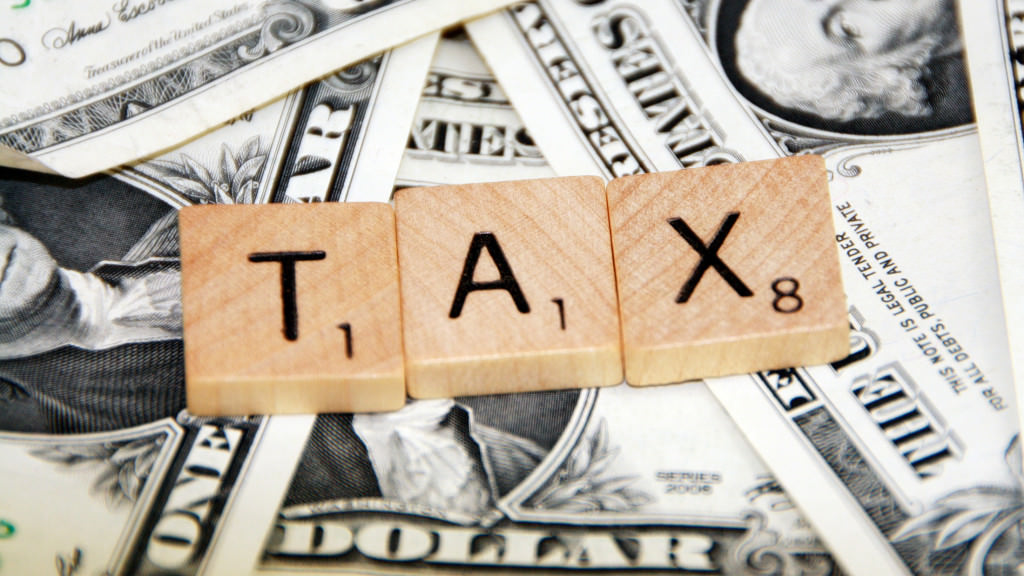Freelancing is a great option as a person can work at his/her own convenience. There is no need to work from 9-5, and the person can decide his/her own work timings. One becomes one’s own boss without the need to take permission from anyone.
Infact working for one’s on self is a great option. It fills the person with pride at the end of the day by getting a cheque for the work that too without an employer. The freelancers include all the self-employed people and the consultants. Numerous self-employed people can be placed in the category of freelancers. The freelancers don’t get any fixed income and are paid on the basis of the projects or assignments. However, the other side of freelancing is the hassles associated with income tax filing online for Freelancers.
The tax paying is more complicated in the case of freelancers as the income comes from various sources as the freelancers work for more than one client at a time. Income Tax Filing Online for Freelancers is a complicated process,but a careful examination can help in saving a lot of money.
Even before getting the income, the very first concern in the mind of the freelancers is worry about the W-2 form related to Tax Filing for Freelancers. All of a sudden the person any get more than 1099 forms to report the income to IRS. In comparison to freelancers, the regular employed needn’t worry about their tax payments, where their tax payment is deducted from their pay cheques. However, the freelancers have to make about 8 tax payment with 2 at the end of each quarter. Hence the freelancers need to be very careful regarding the possible way of seeking the tax deductions by keeping track of everything.
7 things to keep in mind while Tax Filing for Freelancers
Here are seven major things to be kept in mind at the time of filing for the tax:
- Knowing about the gross income:
It is vital for the freelancers to know about what is their gross income. As mostly payments to the freelancers are done through online mode, it is easy to calculate it. The gross income is calculated for a financial year from 1 April of the year to 31 March of the next year. However, loans taken the year are not calculated in the gross income while calculating tax filing for freelancers.
- Deduction of the Expenditure:
All the expenditure made towards securing the business has to be deducted from the gross income of the year. Moreover, tax rates are levied on the profit margins. The business expenditure includes everything from phone bills to internet charges while tax filing for freelancers. For example, if a person is working as a software developer, he/she can deduct the expenses of buying the new software and testing the android application.
- Deduction of the Depreciation:
It is vital to deduct all depreciation form the gross annual income. Every year there is depreciation of many business items such as electronic equipment due to wear and tear leading to depreciation of their value. For example, in the case of a photographer, these depreciation can be calculated on the basis of the depreciation of the camera and other printing equipment. Similarly, a software developer can calculate the depreciation based on the wear and tear of lap-top, computer and other equipment for the purpose of tax filing for freelancers.
It is quiet beneficial to show depreciation by showing its use over a time period as these are used for a long time.
In case the person is working in rented accommodation, he/she can seek rent exemption. One can also seek exemption towards membership fees of a business association or any business subscription.
Hence, tax exemption for all the expenditure made for the business purpose should be calculated while tax filing for freelancers. However, such expenses should not be for the personal use.
- Calculation of the income from all other resources:
While tax filing for freelancers should include income from all other sources in the ITR form at the time of tax filing for freelancers. These incomes can be as follows:
- Profit acquired from property in form of rent or sales gain.
- Income acquired as interest through Fixed Deposits, saving accounts, etc.
- Income acquired through investing in share market, debentures, equity, etc.
- Income acquired through working in the regular employment, if any.
- Awareness about the tax deduction:
Like the regular employed person, a freelancer can also seek tax exemption through the section 80 while tax filing for freelancers. The various parts of section 80 can be referred for availing such deductions.
- Claiming the TDS deductions:
The income the freelancer gets is after getting the TDS (Tax Deducted at Source). However, such deduction can be claimed while tax filing for freelancers,and it can help in saving a large amount of money. For making such claim, the freelancer can fill Form 26AS. The status of all deduction can be checked through online mode. Since the form is linked with the PAN card of the applicant, it is easy to find the entire amount of TDS. The person should include all these deductions while filing ITR.
- Timely payment of Advance Tax:
In case the income tax of the person is more than 10,000 he or she has to pay Advance Tax. Instead of paying income tax once in a year, the advance tax has to be paid frequently throughout the year for tax filing for freelancers. One should keep in mind to pay it regularly for avoiding the interest charge along with final income tax which is levied as per the section 234B and 234C of the Income Tax Act.
These were some tips for tax paying for the freelancers. Now here are some taxes which the freelancers are supposed to pay.
Tax to Be Paid By a Freelancer
In case the tax liability of a freelancer is more than 10,000 in a year, he/she has to pay advance tax on a quarterly basis.
Ways to Calculate Advance Tax
The Advance Tax is calculated in the following way:
Add every receipt for calculating the total income for tax filing for freelancers. It is followed by deducting the work-related expenditure. Then, income from other sources like that from house rent or saving account is added up. This will help in finding out the income tax slab in which the person will fall for calculating the due tax. One should not forget to deduct the TDS. In case the amount of income tax is more than Rs. 10,000 the person has to pay Advance Tax. The details about the due date for the Advance Tax can be seen in Appendix 1.
One can pay Advance Tax by paying through online mode by logging into the website of the department. It is also possible to make the payment through offline mode by filling the paper challan and depositing the tax by visiting the bank in person in case of tax filing for freelancers.
GST For Freelancers
Previously the freelancers were required to pay Service Tax and VAT; however, now it is replaced by GST. The detailed information about it as follows:
- In case the person is selling goods: Instead of VAT, GST is applicable now. However, the rate of GST fo rtax filing for freelancers depends upon the type of product the person is selling. In case the person is selling cakes, the amount of GST levied to him/her is 18%.
- In case the person is offering services: In case of most of the services, the applicable GST is 18%. Hence the person should charge 18% GST from his/her clients for this purpose.
However, it is important to note here that in case the total revenue is less than Rs. 20 Lakh, the person is not liable to pay GST. In case the person is selling goods, he/she is eligible to avail the composition scheme. However, this scheme is not applicable in case of the service sector. Anyhow, the person is free to offer inter-state services to the maximum amount of Rs. 20 lakh without need of registering for GST. Moreover, the person is exempted from GST in case of exporting the goods when tax filing for freelancers.
It is important to note that the invoice should comply by the GST rules.
These were some important thing to keep in mind while tax filing for freelancers. Freelancing is an excellent opportunity for all those who are seeking flexibility regarding time frame and working hours. But the tax paying in case of freelancers involve a lot of hassles and complications making the process of filing ITR cumbersome. The reason for this complexity is that the money is coming from numerous sources, TDS might also be levied while making payments, which is generally ignored while filing the tax. However, a thorough and close examination can help the freelancers to deduct expenditure and TDS. Playing safe is important while filing ITR for the freelancers. Simplicity in tax paying can spring from measuring every expenditure and benefits which can help in lowering the ITR amount. Tax filing for freelancers can be a simple process if it is followed through a systematic approach helping freelancers to avail numerous benefits.







